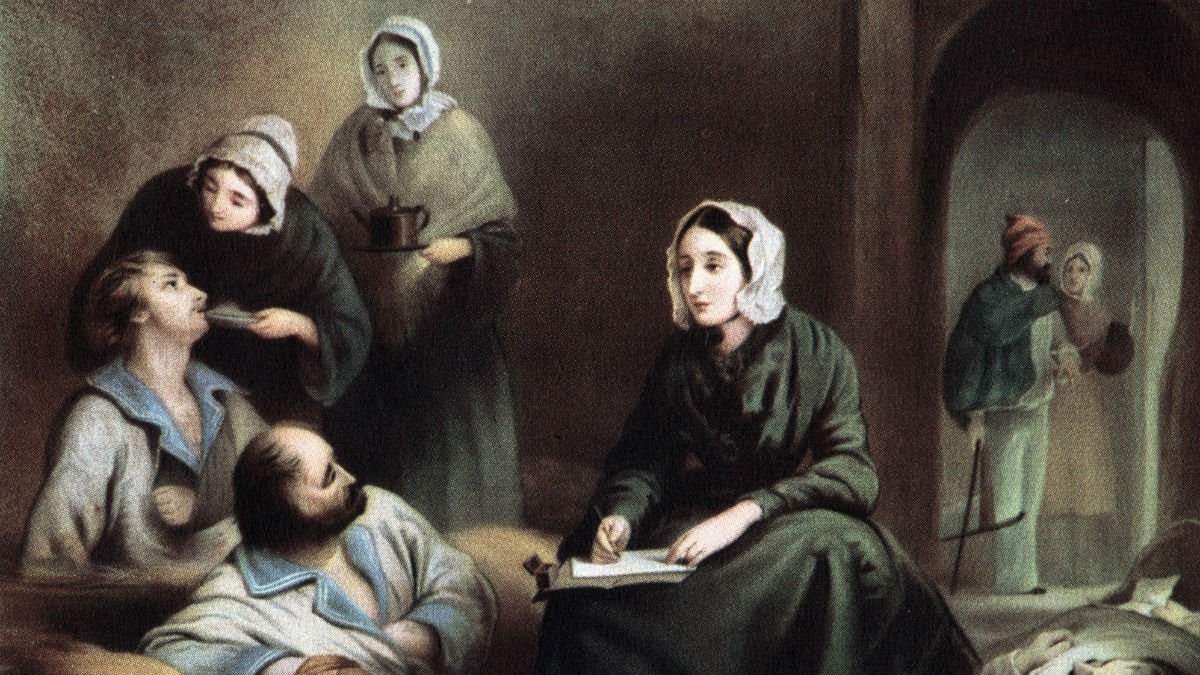What Would Florence Nightingale Do?
On International Nurses Day Professor Ann Gallagher and Dr Chris Herbert from the International Care Ethics Observatory at the University of Surrey reflect on how Florence Nightingale would have dealt with the current Covid-19 pandemic.

This year marks the 200th anniversary of the birth of Florence Nightingale. She is an icon, renowned for her contribution to the development of nursing as a profession. Commemorations and conferences planned to mark the revolution in healthcare that she achieved are now, by unfortunate and ironic coincidence, on hold as we respond to the globe’s worst healthcare emergency in recent times. However, the greatest tribute we can pay to Nightingale is to reflect on her legacy and consider the light her life and work cast on our current global care crisis. Three aspects are noteworthy: we need to be resilient and not self-pitying; we need to extend our moral imaginations to consider the experience of others; and we need to think more clearly about the limitations of evidence and the importance of values.
Even cursory engagement with the life of Florence Nightingale reveals her resilience and stoicism. The odds were stacked against her becoming anything more than a 19th century genteel person of privilege, absorbed by drawing room tea parties, embroidery and reading aloud. Yet, she felt called to pursue a path that immersed her in the most appalling suffering imaginable at the Scutari hospital during the Crimean War. There, material resources were scarce but the human resources of Nightingale and her nurses were directed toward compassion and the reduction of suffering. Nightingale herself became very sick and yet carried on. The current pandemic calls for care professionals – and citizens – to be resilient and to prioritise the interests of others over their own.
Nightingale’s empathy for those who were marginalised and neglected highlights the importance of working to understand the experience of others and to value the dignity of all lives equally -- to be, effectively, in solidarity with each other. In the present challenging situation we are making – and will have to continue to make – hard choices in our personal and professional lives. For those who work in health care, decisions will centre around who gets what resource and why. None should be deprived of care because of age, class, gender, disability or any other form of bias. However, in reality, there will be insufficient non-human resources (for example, ventilators) to go around and tough ethical decisions will have to be made -- just as they were at Scutari, 200 years ago.
Nightingale was acutely aware of the need for calm and clear thinking. In fact, Queen Victoria is reported as saying: ‘We are very much struck by her…wonderful, clear and comprehensive head. I wish we had her at the War Office!’ It is little known that Nightingale also had a fine sense of humour. She wrote to her parents of the challenges of managing the rigid hierarchies of the Crimea military and declared that she was ‘suffering from a compound fracture of the intellect’. Undeterred, and in the face of much ignorance and uncertainty regarding the evidence base for her nursing activities (which she went on to develop), Nightingale persevered and improved the lives of many in her care. Her clarity about the ethical values that underpin relationships is something we all can strive to develop and express during this pandemic.
If Nightingale was amongst us now, we can assume she would be at the centre of the NHS -- a role model of stoicism, solidarity, calm, impartiality, clarity and ethical integrity. Few of us will find ourselves in the swampy lowlands of NHS decision-making about ‘who gets the ventilator?’ However, many of us will be in positions to deliver care and provide comfort to those who are suffering. Let’s hope we can all be decent in our dealings with others and aspire to the Nightingale virtues of care, generosity, selflessness and wisdom.
Featured Academics
Media Contacts
External Communications and PR team
Phone: +44 (0)1483 684380 / 688914 / 684378
Email: mediarelations@surrey.ac.uk
Out of hours: +44 (0)7773 479911